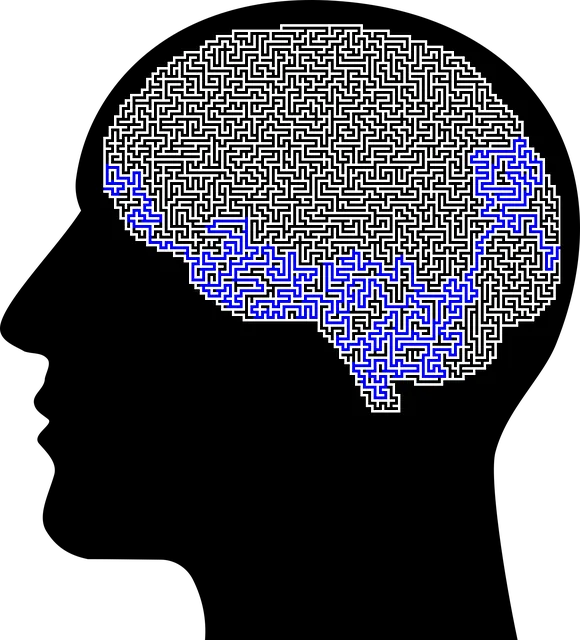Kaiser Permanente's mental health appointment centers in Centennial leverage diverse data sources to understand patient trends, enhancing services through podcasts, cultural sensitivity programs, and self-care routines. Comprehensive record-keeping enables robust analyses guiding clinical decisions. Trend analysis from conversation patterns identifies community mental health needs, informing tailored interventions like mindfulness programs for young adults. Ethical considerations, including privacy protection, ensure responsible data use for enhanced mental wellness outcomes without exacerbating disparities in care.
Mental health data analysis has emerged as a powerful tool for understanding and improving patient outcomes. At Kaiser Permanente Centennial, the focus on collecting and interpreting mental health data through their robust appointment centers is revolutionizing care. This article explores this process from understanding patient interactions to informing treatment strategies. We delve into the ethical considerations involved, highlighting the significance of data analysis in enhancing mental health services at Kaiser Permanente Centennial and beyond.
- Understanding Mental Health Data at Kaiser Permanente Centennial
- The Role of Appointment Centers in Data Collection
- Analyzing Trends: Uncovering Insights from Patient Interactions
- Interpreting Results: Informing Treatment Strategies
- Ethical Considerations in Mental Health Data Analysis
Understanding Mental Health Data at Kaiser Permanente Centennial

At Kaiser Permanente Centennial, understanding mental health data is a multifaceted endeavor. The organization leverages its extensive network of mental health appointment centers to gather and analyze trends, ensuring that services are tailored to meet the diverse needs of its members. This involves collecting qualitative and quantitative data from various sources, including patient records, survey responses, and even social media insights. By integrating these data points, Kaiser Permanente can identify emerging patterns, such as increased stress levels or specific mental health challenges within certain demographics.
This comprehensive approach is further enhanced by the Mental Wellness Podcast Series Production and Cultural Sensitivity in Mental Healthcare Practice initiatives. These programs not only improve patient engagement but also foster a more inclusive environment, ensuring that all individuals feel comfortable seeking help. Additionally, promoting Self-Care Routine Development for Better Mental Health is integrated into the organization’s data analysis strategy, as recognizing the impact of self-care practices can significantly influence overall mental wellness outcomes.
The Role of Appointment Centers in Data Collection

The Kaiser Permanente mental health appointment centers play a pivotal role in data collection and analysis, offering a structured framework for understanding patient mental health trends in the Centennial region and beyond. These centers serve as hubs where individuals from diverse backgrounds seek support for their psychological well-being, providing valuable insights into common mental health issues, severity levels, and treatment responses. Through meticulous record-keeping and standardized assessment tools, the appointment centers capture comprehensive data on patient demographics, symptoms, diagnoses, and progress over time. This rich dataset forms the backbone of robust mental health analyses, enabling researchers and healthcare providers to identify patterns, predict outcomes, and tailor interventions.
The data collected at these centers not only contributes to clinical decision-making but also fuels the development of evidence-based practices. For instance, it can facilitate a more precise Risk Assessment for Mental Health Professionals, allowing them to proactively manage patient care. Moreover, by analyzing trends in mental health awareness and Self-Esteem Improvement initiatives, these centers can contribute to broader community efforts, ensuring that services are tailored to the unique needs of different populations.
Analyzing Trends: Uncovering Insights from Patient Interactions

Analyzing trends within patient interactions is a powerful method to uncover valuable insights at Kaiser Permanente’s mental health appointment centers in Centennial. By delving into conversation patterns, healthcare providers can identify recurring themes and issues that may be indicative of broader mental health trends among their patient population. For instance, increased references to stress related to work or academic pressures could point to the need for more resources focused on coping strategies for these specific challenges.
This data-driven approach, coupled with the insights gained from Compassion Cultivation Practices and Empathy Building Strategies featured in the Mental Wellness Podcast Series Production, allows mental health professionals to adapt their services more effectively. By understanding the evolving needs of their patients, these centers can ensure they offer relevant programs and therapies that cater to the unique mental wellness challenges facing the community in Centennial.
Interpreting Results: Informing Treatment Strategies

When analyzing mental health data from Kaiser Permanente’s Centennial Mental Health Appointment Center, interpretation of results plays a pivotal role in informing and tailoring treatment strategies. By delving into trends, patterns, and correlations within the collected data, healthcare professionals can gain valuable insights into the efficacy of various therapeutic approaches, patient demographics most in need of specific interventions, and emerging mental health concerns within the community. This nuanced understanding is crucial for customizing care plans that align with individual needs, ensuring the most compassionate and effective support.
For instance, analysis might reveal heightened rates of anxiety disorders among young adults, pointing towards a need to expand programs focused on mindfulness meditation and self-care practices. Conversely, insights into patient journeys could underscore the impact of compassion cultivation practices in managing chronic mental health conditions. Such findings not only guide clinical decisions but also contribute to knowledge bases, potentially revolutionizing care delivery models for better mental well-being outcomes.
Ethical Considerations in Mental Health Data Analysis

In the realm of mental health data analysis, particularly at centers like Kaiser Permanente’s Centennial mental health appointment center, ethical considerations are paramount. As organizations and researchers delve into vast datasets to understand trends in conditions like depression prevention and burnout prevention, they must navigate complex issues surrounding patient privacy, informed consent, and potential biases inherent in digital records. The sensitivity of mental health data demands stringent safeguards to protect individuals’ confidentiality, especially when analyzing symptoms, treatment responses, and recovery trajectories.
Centennial’s commitment to ethical practices involves ensuring data is securely stored, accessed only by authorized personnel, and used solely for research or improvement purposes aligned with enhancing mood management strategies. This meticulous approach fosters trust among patients and promotes the responsible use of data, ultimately leading to more effective services tailored to individual needs without compromising privacy or exacerbating existing disparities in mental health care.
Mental health data analysis is a powerful tool for improving patient care at Kaiser Permanente Centennial and other appointment centers. By understanding trends, interpreting results ethically, and leveraging insights from patient interactions, healthcare providers can inform effective treatment strategies. The role of appointment centers in data collection is crucial, as they serve as the front line for mental health services within the Kaiser Permanente network. This comprehensive approach ensures that patients receive tailored care based on actionable data, ultimately enhancing the overall well-being of the community.






